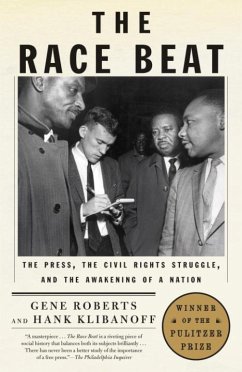
The Full Employment Horizon in 20th-Century America (eBook, ePUB)
The Movement for Economic Democracy

PAYBACK Punkte
13 °P sammeln!
Through moments of social protest, policy debate, and popular mobilization, this book follows the campaign for economic democracy and the fight for full employment in the United States. Starting in the 1930s, Dennis explores its intellectual and philosophical underpinnings, the class struggle that determined the fate of legislation and the role of left-wing civil rights activists in its revival. Demonstrating how the campaign for full employment intersected with movements for women's liberation and civil rights, it explores how social groups and oppressed minorities interpreted and appropriate...
Through moments of social protest, policy debate, and popular mobilization, this book follows the campaign for economic democracy and the fight for full employment in the United States. Starting in the 1930s, Dennis explores its intellectual and philosophical underpinnings, the class struggle that determined the fate of legislation and the role of left-wing civil rights activists in its revival. Demonstrating how the campaign for full employment intersected with movements for women's liberation and civil rights, it explores how social groups and oppressed minorities interpreted and appropriated the promise of full employment. For many, full employment provided an indispensable path to racial and gender emancipation. In this book, Dennis uncovers the class dimensions and the resistance to full employment in the US. He demonstrates how the recurring debates over full employment consistently exposed the contradictions inherent in a capitalist society and challenged the assertion that an allegedly free enterprise system automatically generated employment for all.













